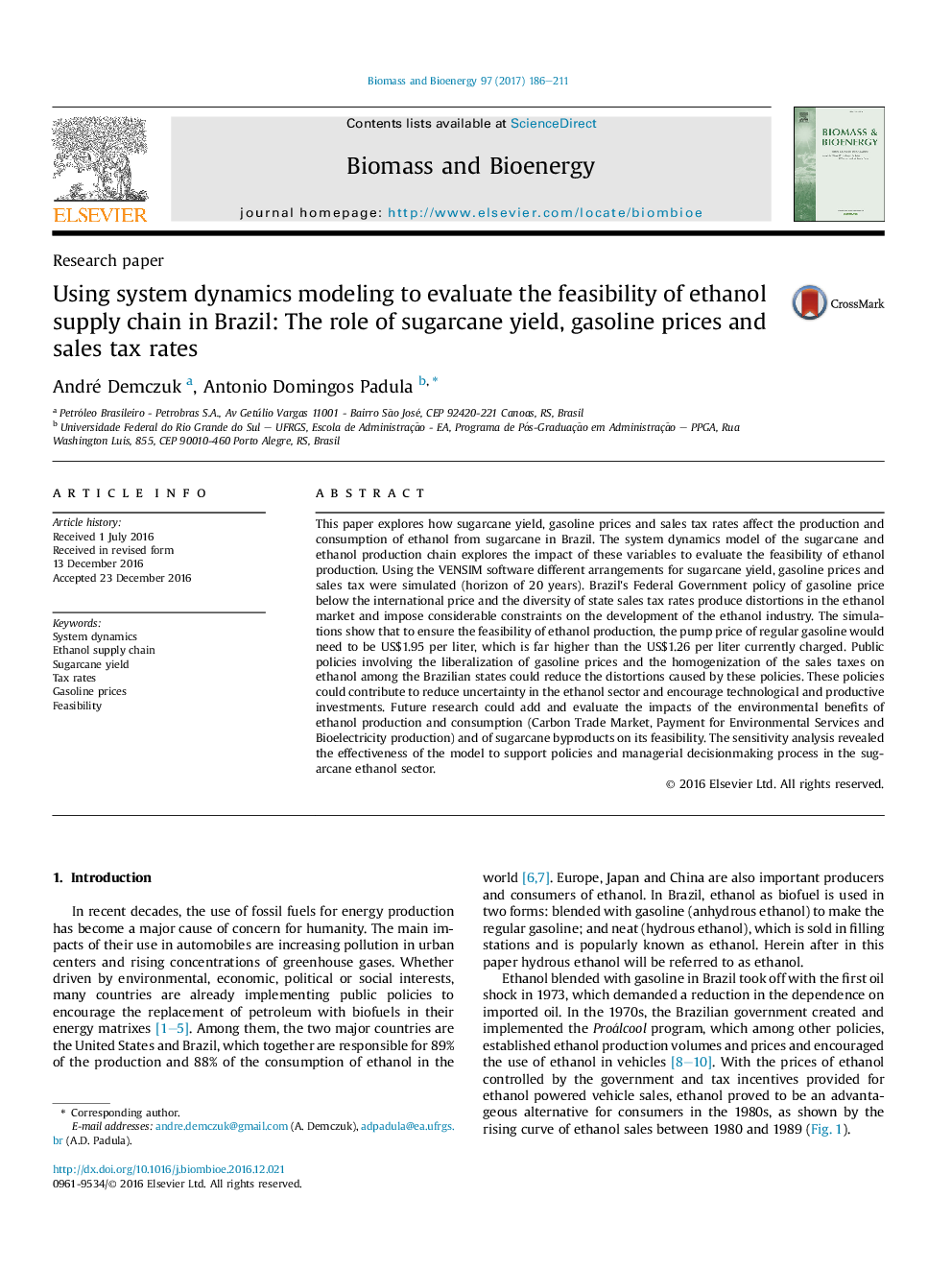ترجمه فارسی عنوان مقاله
با استفاده از مدل سازی دینامیکی سیستم برای ارزیابی امکان زنجیره تامین اتانول در برزیل: نقش عملکرد نیشکر، قیمت بنزین و نرخ مالیات فروش
عنوان انگلیسی
Using system dynamics modeling to evaluate the feasibility of ethanol supply chain in Brazil: The role of sugarcane yield, gasoline prices and sales tax rates
| کد مقاله | سال انتشار | تعداد صفحات مقاله انگلیسی |
|---|---|---|
| 145561 | 2017 | 26 صفحه PDF |
منبع

Publisher : Elsevier - Science Direct (الزویر - ساینس دایرکت)
Journal : Biomass and Bioenergy, Volume 97, February 2017, Pages 186-211
ترجمه کلمات کلیدی
دینامیک سیستم، زنجیره تامین اتانول، عملکرد گوجه فرنگی، نرخ مالیات، قیمت بنزین، امکان پذیری،
کلمات کلیدی انگلیسی
System dynamics; Ethanol supply chain; Sugarcane yield; Tax rates; Gasoline prices; Feasibility;

